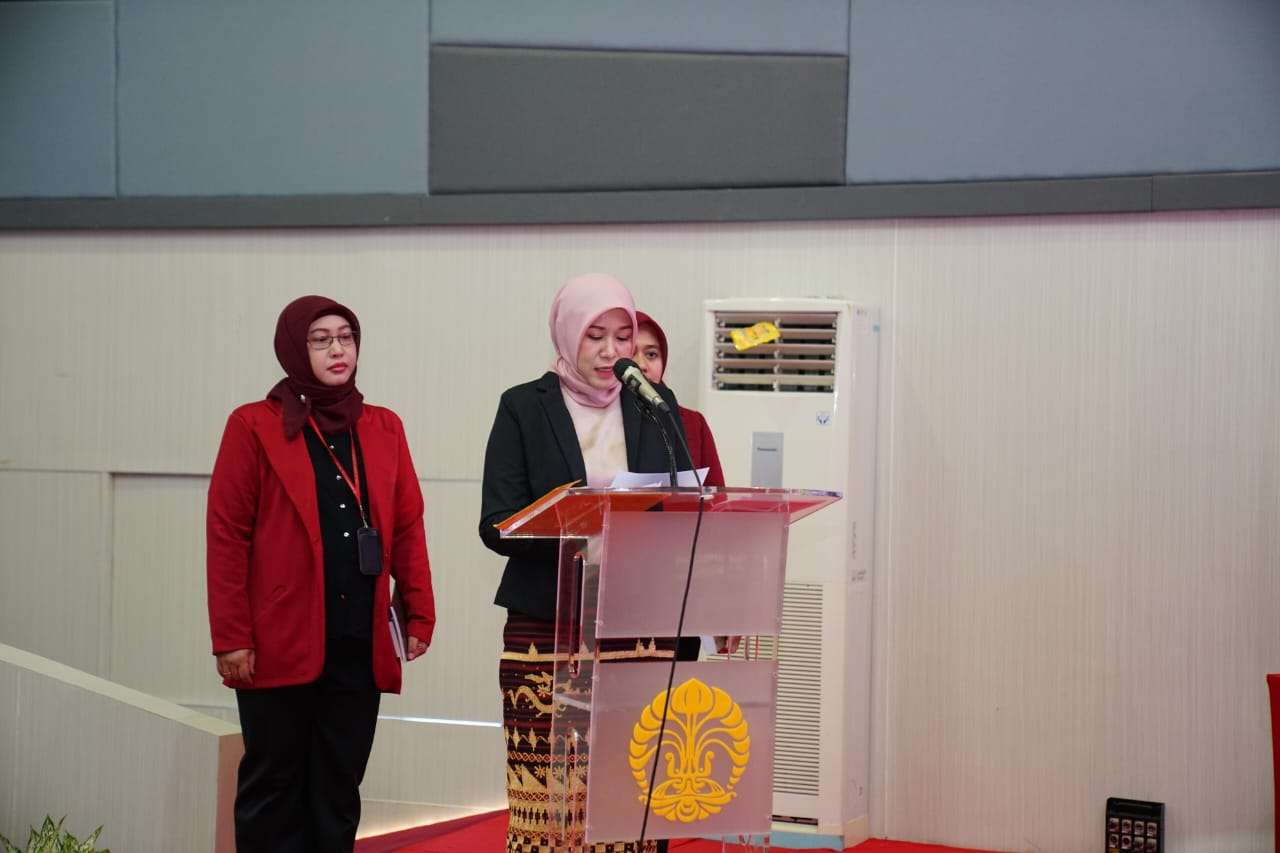Depok-At the open session of his doctoral promotion which took place at the Faculty of Administrative Sciences (FIA) Universitas Indonesia (UI), Dr. Sandra Aulia Zanny, S.E., M.S.Ak., CA., CPA., CICS., CRMP., CACP., said that over the past two decades several tax authorities around the world have introduced the Co-operative Compliance (CC) approach and increasingly many countries are implementing it.
According to the OECD (2022) until 2020, 64 countries have used the cooperative compliance approach in WP LTO. Indonesia is currently in the stage of developing a tax data integration program which began with a pilot project for selected WP agencies. CC is a cooperative relationship based on mutual trust between the government (tax authority) and the taxpayer. The thing that is of concern, said Sandra when presenting her dissertation entitled “Risk-Based Co-Operative Compliance Through Integration of Tax Data: An Overview of the Tax Administration Paradigm in Indonesia” on Tuesday (11/7) is that there is an urgency to build a risk-based CC paradigm through integration tax data in tax administration in Indonesia.
 (Photo: Dr. Sandra Aulia Zanny explains the four important elements in Co-operative Compliance)
(Photo: Dr. Sandra Aulia Zanny explains the four important elements in Co-operative Compliance)
Sandra explained that in building the CC paradigm, it started with an analysis of the determinants of tax compliance in Indonesia to see the current conditions and conducted a CC implementation study in ten countries. From the research conducted, Dr. Sandra got the result that qualitative testing of a number of Corporate Taxpayers (WP) in Indonesia, found a conceptual gap in the Slippery Slope Framework (SSF) which is used as a basis for tax compliance research. In the SSF, tax compliance is influenced by trust which forms voluntary compliance and power variables which form forced compliance, but there are other variables that have an effect, namely tax risk.
The tax risk is seen as an uncertainty in taxation that will lead to tax exposure or tax surprise which will affect the company’s strategy and objectives. Dr. Sandra added, the source of tax risk can be caused by internal and external factors, but the main risk is due to the grey area.
“This study reconstructs the SSF into the TPR Model, which shows the interaction between trust, power, and tax risk as well as the presence of technology and the Tax Control Framework (TCF) in optimizing tax compliance. This was derived in economic mathematics, visualized, and tested empirically through quantitative research,” said Dr. Sandra.
 (Photo: Submission of the results of Dr. Sandra Aulia Zanny’s doctoral trial)
(Photo: Submission of the results of Dr. Sandra Aulia Zanny’s doctoral trial)
The TPR Model is the basic reference in building a cooperative compliance paradigm in Indonesia. Then, studies of CC implementation in ten countries show that each country implements CC in various forms, and is implemented according to the needs and tax administration system in each country.
The risk-based Co-operative Compliance paradigm through integration of taxation data is a breakthrough in tax administration which aims to increase legal certainty and reduce compliance costs from the Taxpayer side as well as increase tax compliance at the proper level and reduce tax administration costs from the Tax Authority side, mutual beneficial.
“Four important elements in Co-operative Compliance namely 1) legal certainty and benefits within a regulatory framework, 2) voluntary participation (but can be an appointment for Strategic WP), 3) transparency and disclosure through integration of taxation data is carried out in the GL Tax Mapping process, and 4) tax control framework (Tax Control Framework),” said Dr. Sandra, who is a teacher in the Accounting study program, UI Vocational Education Program.
Futhermore, Dr. Sandra explained, these four elements must be supported by changes in mindset, mutual trust and understanding, effective communication, advance ruling, human resources who have business awareness, hard skills, soft skills and ethics, as well as the support of effective Compliance Risk Management (CRM).
Thanks to her research, Dr. Sandra succeeded in becoming the 30th doctorate from the Faculty of Administrative Sciences and the 218th in Administrative Sciences with a Cum Laude graduation. In the doctoral promotion session chaired by Prof. Dr. Amy Yayuk Sri Rahayu, M.Si., with Promoter Prof. Dr. Haula Rosdiana, M.Si., and Co-Promoter Dr. Inayati, M.Si. Meanwhile, the examiner team consisted of Yon Arsal, M.Ec., Ph.D.; Prof. Dr. Edi Slamet Irianto, M.Si.; Dr. Machfud Sidik, M.Sc.; Dr. Ning Rahayu, M.Si.; and Dr. Milla Sepliana Setyowati, M.Si.Ak.


